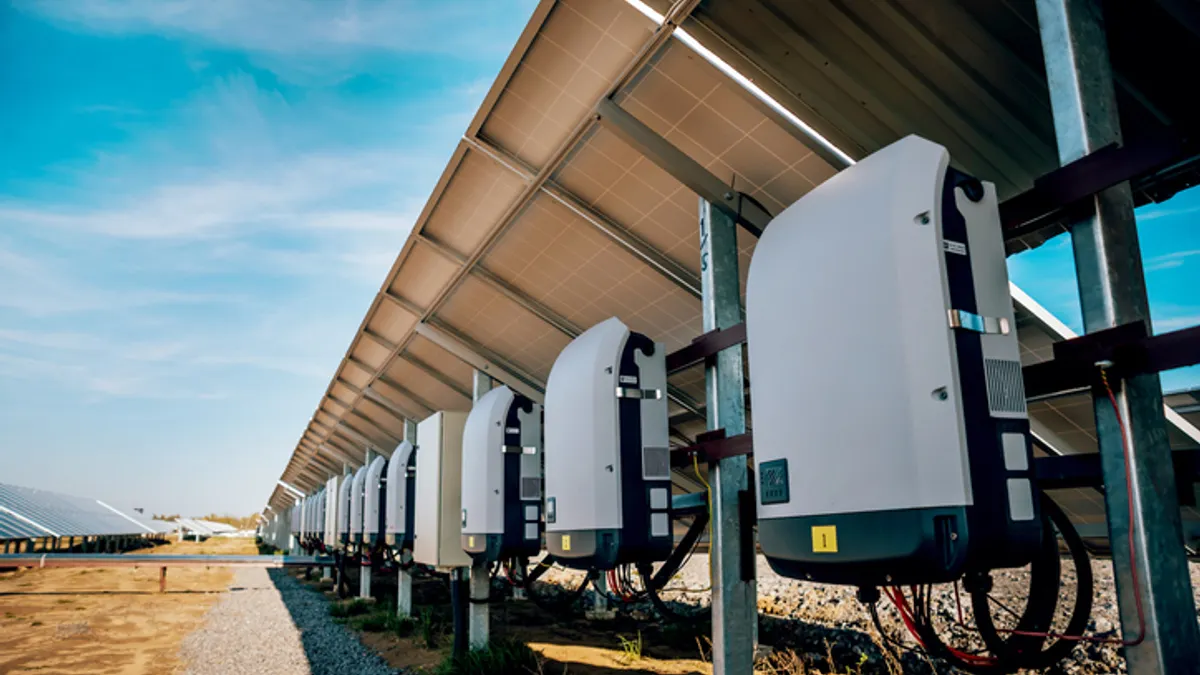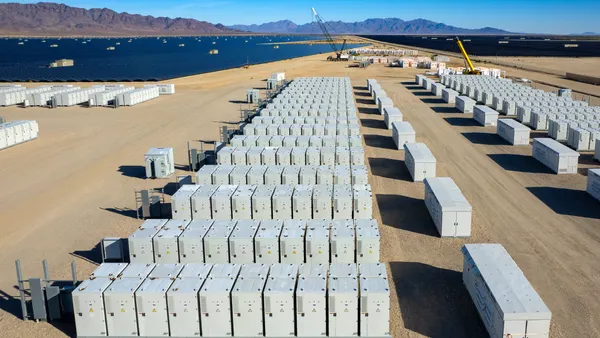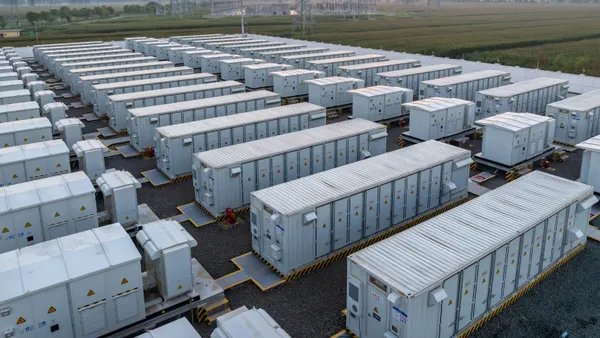Dive Brief:
- The Public Service Commission of Maryland last week issued an order approving six energy storage pilot projects, proposed by Exelon subsidiaries Baltimore Gas and Electric Company (BGE), Potomac Electric Power Company (Pepco), and Delmarva Power & Light that regulators say will return data and experience that could form the foundation for the next phase of utility-scale storage in the state.
- At the same time, the commission rejected one storage proposal from Potomac Edison — that the utility had requested to withdraw due to technical constraints it discovered only after submitting the application — and deferred consideration of another.
- Northeast markets like Maryland, Massachusets and New Jersey could see expansion of storage resources because of the "really quick ramp up of distributed resources combined with wholesale market opportunity," Suzanne Leta, director of market policy and strategy at SunPower, said at the Greentech Media energy storage summit on Wednesday.
Dive Insight:
Last March, Maryland passed a bill requiring its investor-owned utilities to solicit two energy storage pilots each, with the aim of informing how the technology would be deployed in the state in the future. The utilities filed their applications earlier this year, although Potomac Edison in July withdrew one of its proposals and filed an amended application with revisions to the other.
BGE's proposals included a 2.5 MW/7.1 MWh lithium-ion storage system at its Fairhaven substation — projected to degrade to 4 MWh over the batteries' lifespan — which will both help with winter peak demand and provide frequency regulation in the PJM markets, as well as a 2 MWh project in Chesapeake Beach.
Pepco, meanwhile, pitched a 1.05 MW/4.25 MWh project in National Harbor — which projected to have a 1 MW/3 MWh capacity through its usable life — which would defer the need to build a new substation as well as provide peak shaving and improve grid reliability. In addition, Pepco proposed a lithium-ion storage system at a bus depot in Silver Spring, which would potentially avoid a $3.6 million feeder upgrade that would otherwise be necessary.
Delmarva's two projects include a virtual power plant at the Elk Neck State Park, and a 1 MW/3.6 MWh lithium-ion system in Ocean City, which will provide peak shaving capability, improved reliability, and aid during emergencies.
Potomac Edison, meanwhile, has been reviewing alternative battery sites to replace one of its initial proposals, after finding out that its plan to interconnect the project along a single-phase distribution line would not work, an attorney for parent company FirstEnergy said in a letter submitted to the commission in September.
The company is working on submitting an amended application for a new storage project to the regulators. The commission decided against issuing a decision on Potomac Edison's second pilot until that proposal is filed.
The PSC acknowledged concerns raised by some stakeholders that some of the projects might not be cost effective right off the bat; however, the commission noted, it would provide valuable lessons for utilities and regulators to inform investments made in the future.
The Maryland pilots are aimed at testing out different business models and seeing the benefits of each, Suzanna Mora-Schrader, senior director of strategic initiatives at Exelon, said at the Greentech storage summit. And from a utility perspective, location is a key issue — not just in terms of whether there's room for a project, but whether it's located in a place where there is a current challenge that needs to be addressed.
"That's the first part, is having the utilities have more transparent and collaborative processes for identifying those places where there's a need, where there's market development opportunities," Mora-Schrader said.
In addition, regulators should not try and shove storage into existing asset boxes, Mora-Schrader said.
"You've got to realize that it's not load, it's not generation — it's a unique thing, you have to have new constructs for thinking about it," she added.
The Maryland PSC has already shown regulatory leadership by updating its distributed energy resource interconnection rules for storage earlier this year, and the multiple-use storage pilots approved by the agency portend further progress in capturing the benefits of energy storage for ratepayers, Jason Burwen, vice president of policy at the Energy Storage Association said in an emailed statement.
"While 'multiple-use' storage should deliver savings to ratepayers by increasing capital asset utilization, regulatory updates are needed in nearly every state to unlock this potential. This is all the more important in states where FERC Order 2222 now provides a pathway to wholesale electricity markets for distributed energy resources (DERs) like storage," Burwen said.













